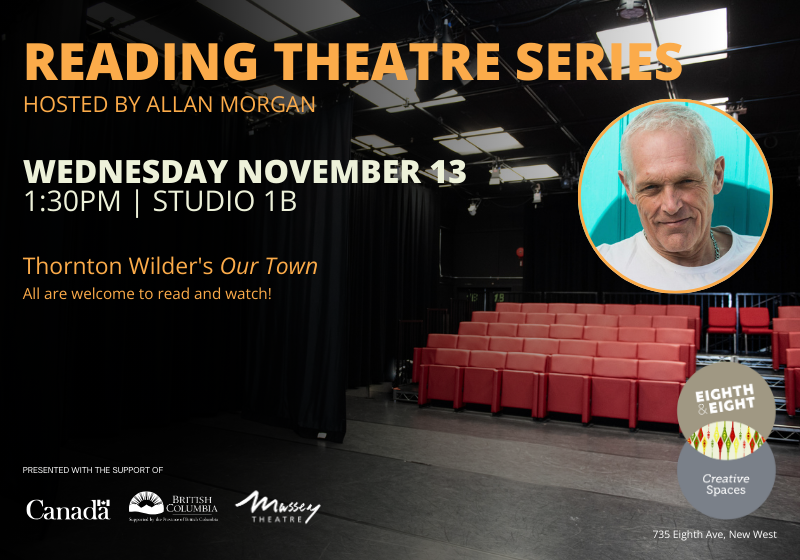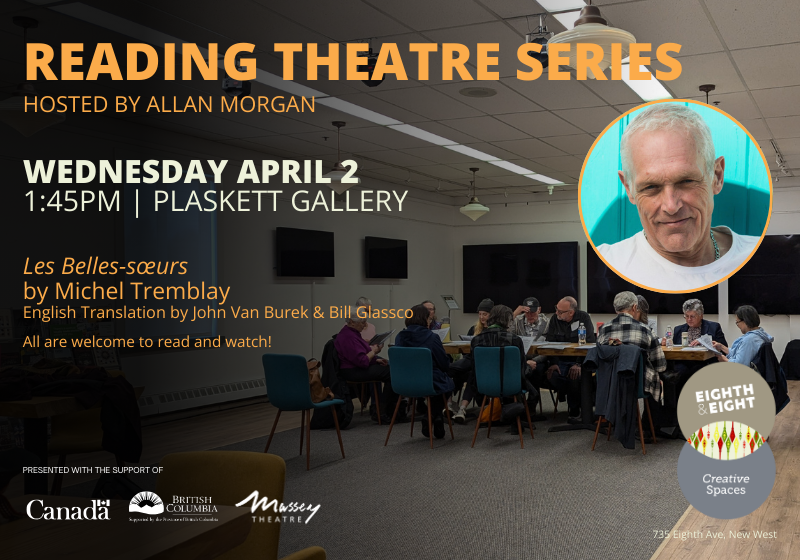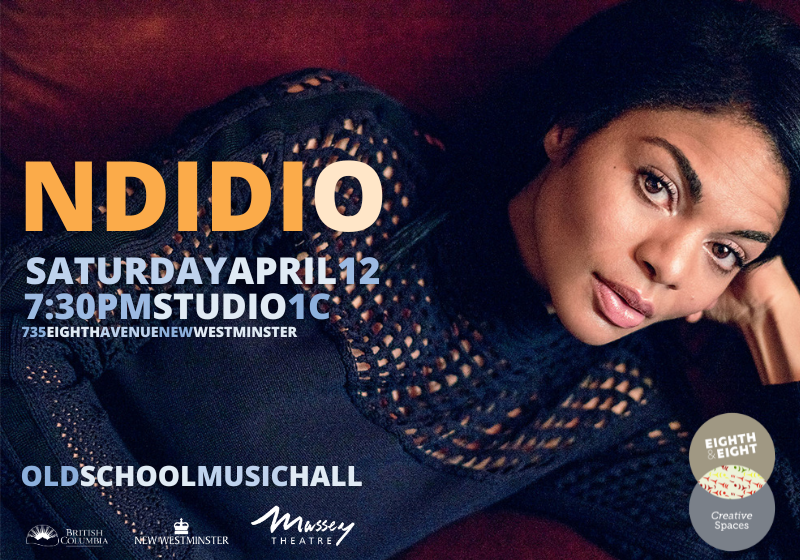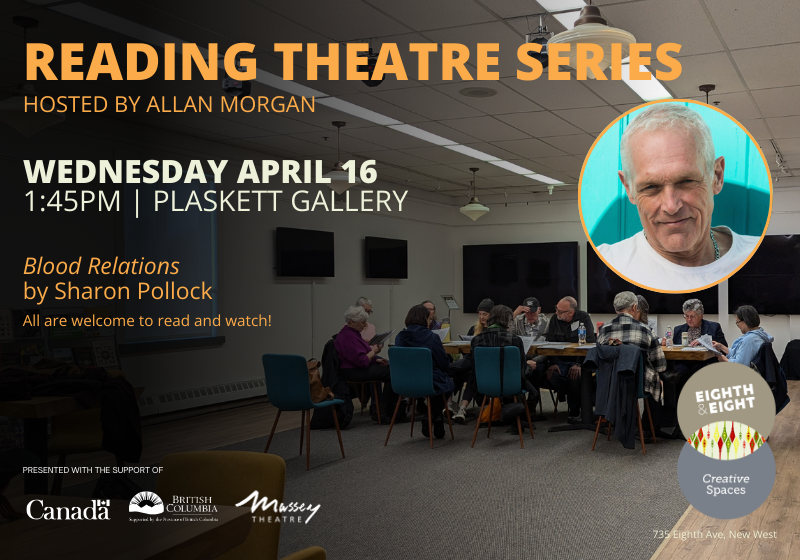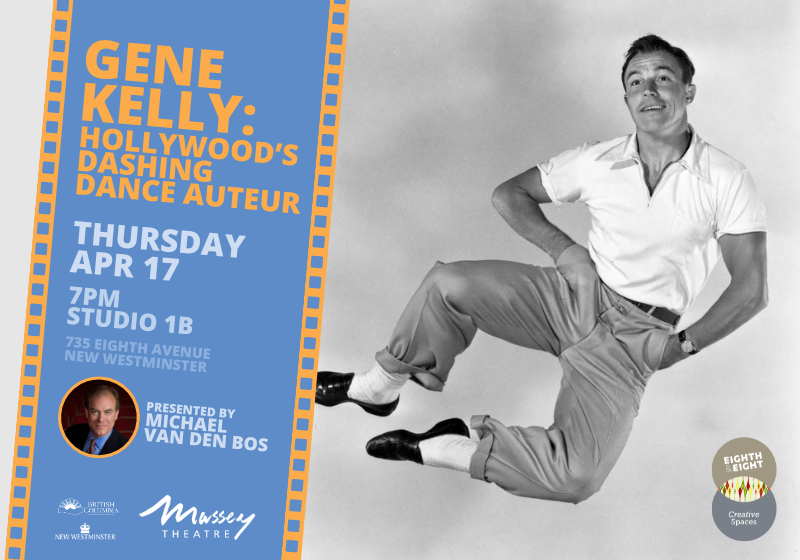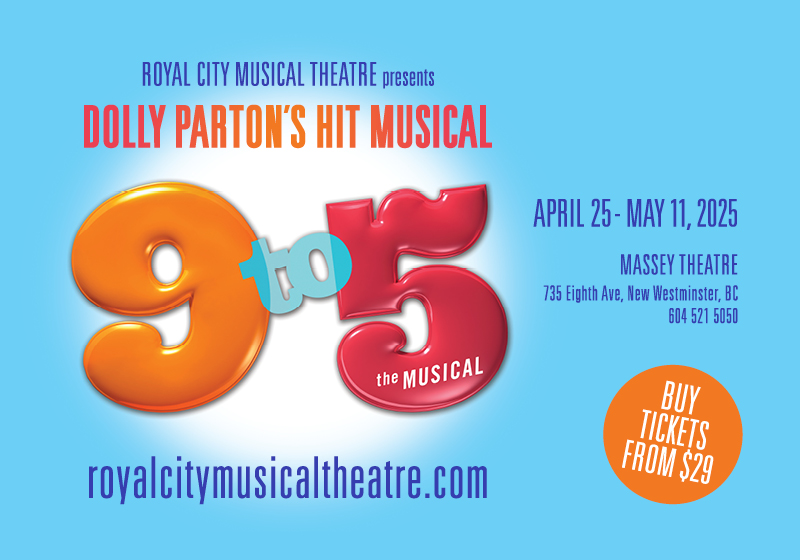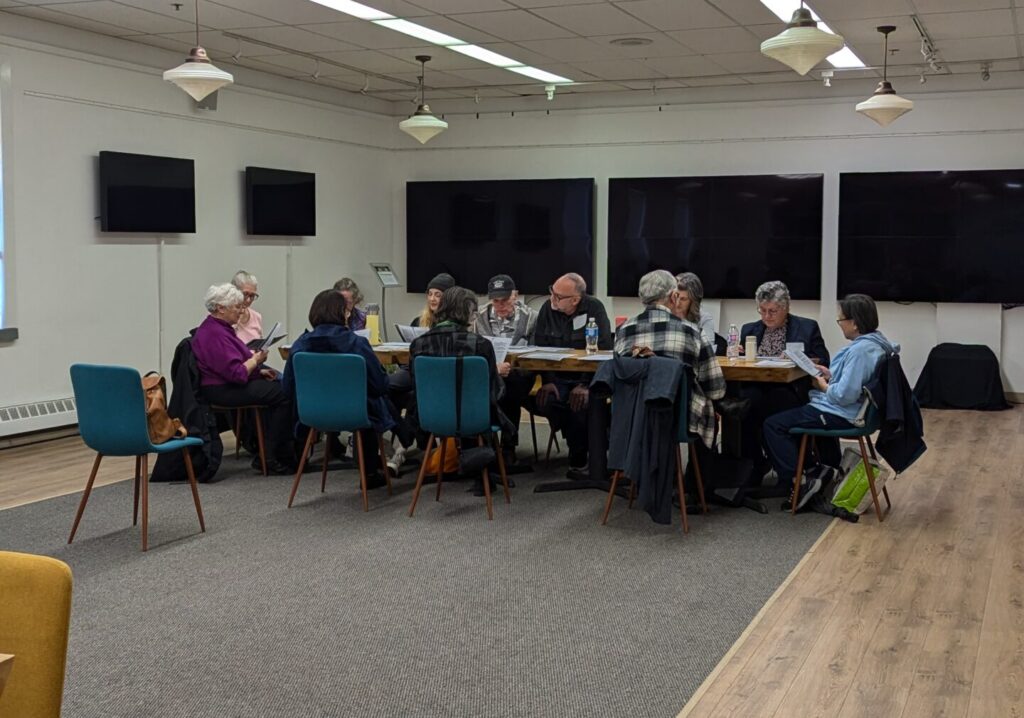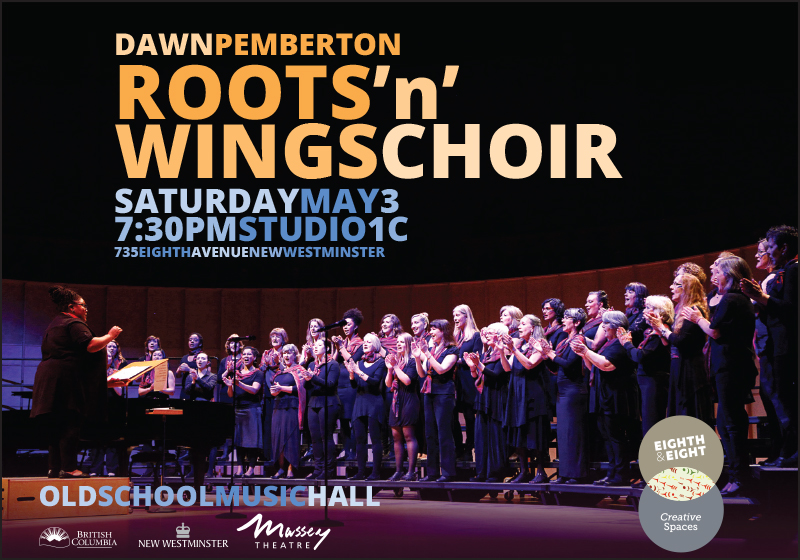Reading Theatre is a new community program at Eighth and Eight for those with a passion for live theatre. A live play reading of iconic plays over the ages. All are welcome and encouraged — from the seasoned professional to the inquisitive amateur and everyone in between.
Show up and read, or listen to others read these incredible shows. A short discussion may take place…or not. This is an event led by the cast and audience.
Readers will be chosen just before the play reading begins and will be cast by those who show up and express an interest in being involved. Some roles may be double cast.
Reading begins at 2pm so please show up by 1:30pm if you wish to have a chance to read.
PDF copy for download or reading on your device. Limited print versions will be available
The first play being read in Reading Theatre is Our Town by Thornton Wilder, described by Edward Albee as “the greatest American play ever written” and we’d love to see you there.
This event is being led by Allan Morgan, Senior Artist in Residence and Vancouver theatre scene stalwart.
ABOUT ALLAN MORGAN
Allan has been a stage actor for more than thirty years. Some highlights include appearing in London, GB, Adelaide Australia, Wellington NZ and San Francisco, all with The Overcoat. He appeared for several seasons at Bard on the Beach, notably in The Tempest as Prospero, as well as King John, A Midsummer Night’s Dream and Much Ado About Nothing.
He has toured across Canada with the Electric Company in Studies in Motion. He has appeared at The Belfry, notably in The Drawer Boy, Dirty Blonde, and I am My Own Wife for which he received the Victoria Critic’s Award for best performance. Other favourites include Red, Thinking of Yu, and Abraham Lincoln Goes to the Theatre for ATP in Calgary.
Allan has two solo plays: I Walked the Line; and Pride: for the young gay, the ungay and the jaded queen in all of us.
ABOUT OUR TOWN:
Written by Thornton Wilder, Our Town premiered on Broadway in 1938. A play-within-a-play, Our Town depicts the everyday lives of citizens living in a fictional small town in New Hampshire, honing in on the relationship between George Gibbs and Emily Webb, two childhood friends who fall in love and get married. The play’s main character, the Stage Manager, provides commentary on the inhabitants of the town Grover’s Corners, breaking the fourth wall to address the audience.
Upon its original opening in the 1930s, Our Town received widespread acclaim, going on to win the Pulitzer Prize for Drama. Considered one of the greatest plays in American theatre, Our Town is also one of the most popular, remaining a perennial favorite for high school productions since its inception. It is consistently produced by theaters at every level, be they professional, community, or school groups. No matter where or when it is staged, Our Town remains an unmissable American masterpiece.
Wilder explained his vision in writing the play: “Our Town” is not offered as a picture of life in a New Hampshire village or as a speculation about the condition of life after death. . . .It is an attempt to find a value above all price for the smallest events in our life. I have made the claim as preposterous as possible, for I have set the village against the largest dimension of time and place. The recurrent words in this play (few have noticed it) are “hundreds”, “thousands”, and “millions”.
Cast:
- Stage Manager– A narrator, commentator, and guide through Grover’s Corners. He joins in the action of the play periodically, as the minister at the wedding, the soda shop owner, a local townsman, etc., and speaks directly to Emily after her death.
- Emily Webb– One of the main characters; we follow her from a precocious young girl through her wedding to George Gibbs and her early death.
- George Gibbs– The other main character; the boy next door, a kind but irresponsible teenager who matures over time and becomes a responsible husband, father, and farmer.
- Frank Gibbs– George’s father, the town Doctor.
- Julia (Hersey) Gibbs–George’s mother. She dreams of going to Paris but never does so. She sells an antique piece of furniture for $350, intending to use it for the trip, but instead leaves the money to George and Emily in will. Dies while visiting her daughter in Ohio.
- Charles Webb– Emily’s and Wally’s father, Editor of the Grover’s Corners Sentinel.
- Myrtle Webb– Emily’s and Wally’s mother
Secondary characters:
- Joe and Si Crowell – Local paperboys. Joe’s intelligence earns him a full scholarship to MIT where he graduates at the top of his class. His promise will be cut short on the fields of France during World War I, according to the Stage Manager. Both he and his brother Si hold marriage in high disdain.
- Simon Stimson– The choir director and church organist. We never learn the specific cause of his alcoholism and suicide, although Joe Stoddard, the undertaker, observes that “He’s seen a peck of troubles.” He remains bitter and cynical even beyond the grave. Some critics interpret Simon as a closeted homosexual.
- Howie Newsome– The milkman, a fixture of Grover’s Corners.
- Rebecca Gibbs– George’s younger sister. Later elopes with a traveling salesman and settles in Ohio.
- Wallace “Wally” Webb– Emily’s younger brother. Died of a burst appendix on a Boy Scout camping trip.
- Professor Willard– A rather long-winded lecturer.
- Woman in the Balcony– Attendee of Editor Webb’s political and social report – concerned with temperance.
- Belligerent Man at Back of Auditorium– Attendee of Editor Webb’s political and social report – concerned with social justice.
- Lady in a Box– Attendee of Editor Webb’s political and social report – concerned with culture and beauty.
- Louella Soames– A gossipy townswoman and member of the choir.
- Constable Bill Warren– The policeman.
- Three Baseball Players– Who mock George at the wedding.
- Joe Stoddard– The undertaker.
- Sam Craig– A nephew of Mrs Gibbs who left town to seek his fortune. He came back after 12 years in Buffalo for Emily’s funeral.
- Man from among the Dead
- Woman from among the Dead
- Carter (Dead)
- Farmer McCarty
- Bessie– Howie Newsome’s horse, visible to the characters,

